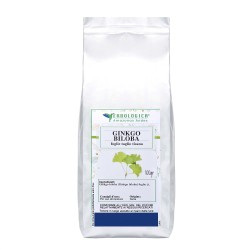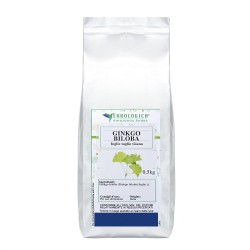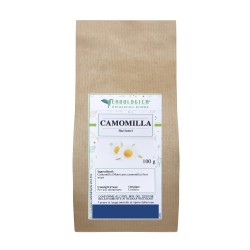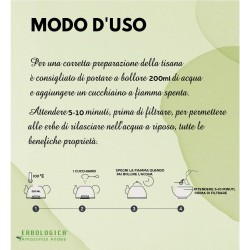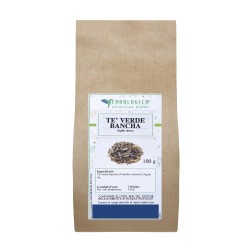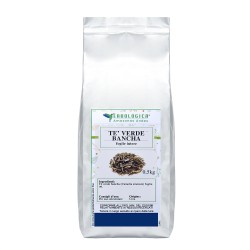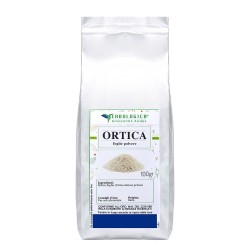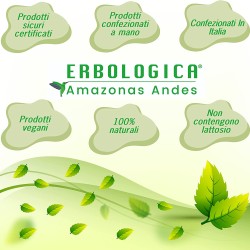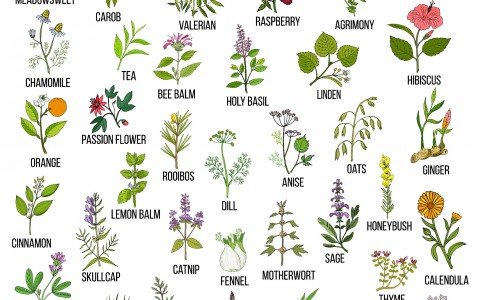
Introduzione
Con l'arrivo della primavera e della fioritura, le allergie stagionali possono rendere la vita difficile per molti di noi.
Starnuti, occhi pruriginosi e naso che cola possono rendere difficile godersi il tempo all'aperto.
Anche se gli antistaminici e altri farmaci possono aiutare a alleviare i sintomi, molte persone preferiscono un approccio più naturale.
Sai che alcune piante possono aiutare a lenire le allergie?
Esatto! Madre Natura ci ha fornito rimedi naturali che possono aiutarci a respirare più facilmente durante la stagione delle allergie.
In questo articolo esploreremo alcune delle principali piante che possono alleviare naturalmente le fastidiose allergie stagionali.
Dalla ben nota foglia di ortica alle opzioni meno conosciute come il ginkgo biloba, scoprirai una serie di soluzioni a base di piante che ti aiuteranno a goderti la primavera senza il raffreddore.
Quindi rilassati, prendi una tazza di tisana alle erbe e scopriamo il mondo delle piante che combattono le allergie!
I vantaggi dell'uso di rimedi naturali per le allergie stagionali
Molte persone preferiscono rimedi naturali per le allergie stagionali perché non vogliono assumere farmaci che possono avere effetti collaterali o causare sonnolenza.
Inoltre, molte piante che combattono le allergie hanno anche altri benefici per la salute.
Ad esempio, la camomilla è nota per avere proprietà antinfiammatorie e calmanti, mentre il tè verde è ricco di antiossidanti.
Inoltre, molte piante che combattono le allergie sono economiche e facili da trovare.
Alcune piante possono essere acquistate in negozi di erbe o in farmacia.
La scienza delle piante e le loro proprietà anti-allergiche
Le piante che combattono le allergie contengono composti che possono aiutare a ridurre l'infiammazione e la produzione di istamina nel corpo.
L'istamina è una sostanza chimica prodotta dal sistema immunitario che causa i sintomi allergici.
Ad esempio, l'ortica è ricca di flavonoidi e carotenoidi che possono aiutare a ridurre l'infiammazione e la produzione di istamina.
Il ginkgo biloba contiene composti chiamati ginkgolidi che possono aiutare a ridurre l'infiammazione.
Le 4 principali piante che alleviano naturalmente le allergie stagionali
Ortica: la foglia di ortica è un rimedio naturale ben noto per le allergie.
Puoi preparare un tè con la foglia di ortica o assumere un integratore alimentare.
Camomilla: la camomilla è nota per le sue proprietà calmanti e antinfiammatorie. Puoi preparare una tisana con i fiori di camomilla.
Ginkgo biloba: il ginkgo biloba è una pianta che cresce in Cina e Corea. Puoi assumere un integratore alimentare o una tisana a base di ginkgo biloba.
Tè verde: il tè verde è ricco di antiossidanti e può aiutare a ridurre l'infiammazione. Puoi bere il tè verde o assumere un integratore alimentare.
Come usare queste piante in modo efficace
Le piante che combattono le allergie possono essere assunte come integratori alimentari o preparati come tisane.
Se decidi di assumere un integratore alimentare, assicurati di leggere le istruzioni sulla confezione e di seguire le dosi consigliate.
Se decidi di preparare una tisana, puoi utilizzare le foglie o i fiori della pianta.
Aggiungi acqua calda e lascia in infusione per 5-10 minuti.
Puoi dolcificare la tisana con miele se lo desideri.
Altri rimedi naturali per le allergie stagionali
Oltre alle piante che combattono le allergie, ci sono altri rimedi naturali che possono aiutare a lenire i sintomi allergici.
Ad esempio, puoi utilizzare un purificatore d'aria per ridurre la quantità di polline nell'aria.
Puoi anche utilizzare un umidificatore per mantenere l'aria umida e ridurre l'irritazione del naso e della gola.
Inoltre, puoi evitare di uscire nelle ore in cui i livelli di polline sono più alti.
Puoi controllare i livelli di polline consultando le previsioni meteo o utilizzando un'app che fornisce informazioni sui livelli di polline.
Precauzioni e effetti collaterali da considerare
Anche se le piante che combattono le allergie sono considerate sicure, è sempre meglio consultare un medico prima di assumere qualsiasi rimedio naturale.
Alcune piante possono interferire con i farmaci o causare reazioni allergiche.
Inoltre, alcune piante possono avere effetti collaterali come mal di testa, disturbi gastrointestinali o sonnolenza.
Assicurati di leggere le istruzioni sulla confezione e di seguire le dosi consigliate.
Come incorporare queste piante nella tua routine quotidiana
Puoi incorporare queste piante nella tua routine quotidiana in diversi modi.
Ad esempio, puoi preparare una tisana al mattino o assumere un integratore alimentare a colazione.
Puoi anche utilizzare alcune piante come condimento per i tuoi pasti.
Ad esempio, puoi aggiungere foglie di ortica alle tue insalate o utilizzare il burrobur come sostituto del basilico nel pesto.
Domande frequenti sui rimedi naturali per le allergie
Posso assumere piante che combattono le allergie se sono già in terapia con antistaminici?
È sempre meglio consultare un medico prima di assumere qualsiasi rimedio naturale se sei già in terapia con antistaminici o altri farmaci.
Posso assumere piante che combattono le allergie se sono incinta o allatto?
È sempre meglio consultare un medico prima di assumere qualsiasi rimedio naturale se sei incinta o allatti.
Posso assumere piante che combattono le allergie se ho altre patologie?
È sempre meglio consultare un medico prima di assumere qualsiasi rimedio naturale se hai altre patologie.
Conclusioni: abbracciare i rimedi naturali per le allergie stagionali
Le piante che combattono le allergie possono aiutare a lenire i sintomi allergici in modo naturale e senza effetti collaterali.
Tuttavia, è sempre meglio consultare un medico prima di assumere qualsiasi rimedio naturale e di seguire le dosi consigliate.
Incorpora queste piante nella tua routine quotidiana e goditi la primavera senza il raffreddore!


